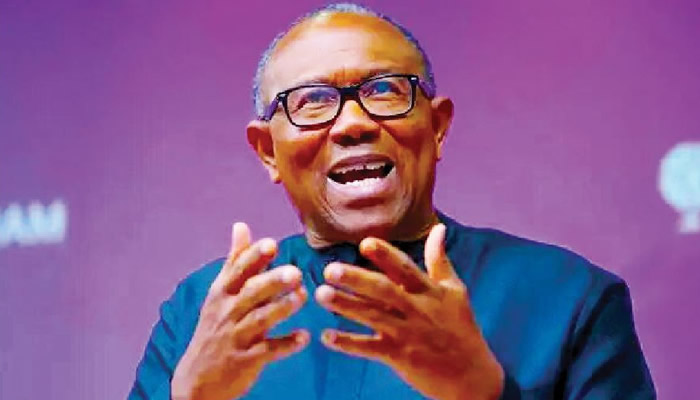Presidential candidate of the Labour Party (LP) in the 2023 election, Peter Obi, has raised a strong alarm over the deepening hunger and poverty crisis in Nigeria, stressing that the situation is no longer an abstract figure on paper but a harsh and painful reality that millions of citizens are living through every day.
In a lengthy post shared on his verified X (formerly Twitter) handle yesterday, the former Anambra State governor painted a grim picture of the nation’s socio-economic condition, warning that without disciplined and people-focused leadership, the suffering of Nigerians would continue to escalate.
“In our country today, hunger and poverty are not just distant statistics; they are the harsh reality that millions of our people face daily,” Obi said.
According to him, recent reports from the United Nations indicate that about 34 million Nigerians are expected to face acute food insecurity in the coming months, while a staggering 63% of the population — about 133 million people — are already living in multidimensional poverty.
Obi said the economic strain is being felt across all social classes, with even middle-income families now sliding into poverty. He blamed this on poor economic management and a leadership that lacks both capacity and compassion.
“Inflation, even with the suppressed statistics, is nearly 30%, while unemployment and economic mismanagement have nearly wiped out our once vibrant middle class. Families who once lived stable lives are now slipping into poverty,” he lamented.
The Labour Party flag bearer accused those in power of putting personal and political interests above national welfare, describing the crisis as “the result of incompetent leadership without the will to put Nigerians first in their actions.”
Argentina as a Case Study
In making his case that economic revival is possible within a short time, Obi drew parallels with Argentina, a South American country that was in severe economic distress but managed to achieve remarkable progress through decisive reforms.
“In Argentina, over 52% of its population lived in poverty by early 2024, according to the World Bank, with millions unable to meet basic needs. Inflation was above 200%, and economic confidence had collapsed,” he recalled.
He explained that within just two years of assuming office, Argentina’s newly inaugurated president cut waste in governance, prioritised economic stability, and implemented reforms that reduced the poverty rate from 52% to 38.1%. Extreme poverty also dropped to 8.2%, while inflation slowed to around 2–3% monthly.
“As of 2025, urban poverty had declined to 31.6%, lifting millions of people out of poverty. Investor confidence grew, and the economy began to expand. The people now see real improvements in their daily lives,” Obi noted.
Highlighting that both Argentina’s leadership and Nigeria’s current administration came into power in the same year, Obi insisted that while two years may not be enough to completely transform a struggling nation, it is certainly enough to set it firmly on the path to recovery — if the leadership is honest, focused, and committed to national interest.
Call for Honest Leadership and Focused Governance
Obi maintained that Nigeria’s economic woes are not insurmountable but require leaders who will prioritise the welfare of citizens above personal gain, manage resources prudently, and take a tough stance against corruption.
“Nigeria can work. We can reduce hunger and restore dignity to Nigerians. But this will not happen while corruption and criminality dominate our governance,” he declared.
He urged for a leadership approach that is committed to cutting the cost of governance, channeling resources to critical areas such as education, healthcare, infrastructure, and human capital development, and ensuring that every policy is geared toward lifting citizens out of poverty.
Obi concluded by reiterating his long-held belief that with disciplined leadership, a clear economic plan, and a zero-tolerance approach to corruption, Nigeria could follow the example of other nations that have turned their fortunes around in record time.
“Nigeria will work, but only if we, as leaders, commit to tackling corruption, cutting the cost of governance, and focusing on critical areas of development just as other nations have done with remarkable results. A New Nigeria is POssible,” he said.
Obi’s remarks come at a time when economic hardship, soaring food prices, and rising unemployment continue to dominate public discourse ahead of the 2027 elections, making hunger and poverty one of the most urgent political and policy challenges facing the country.

Comments